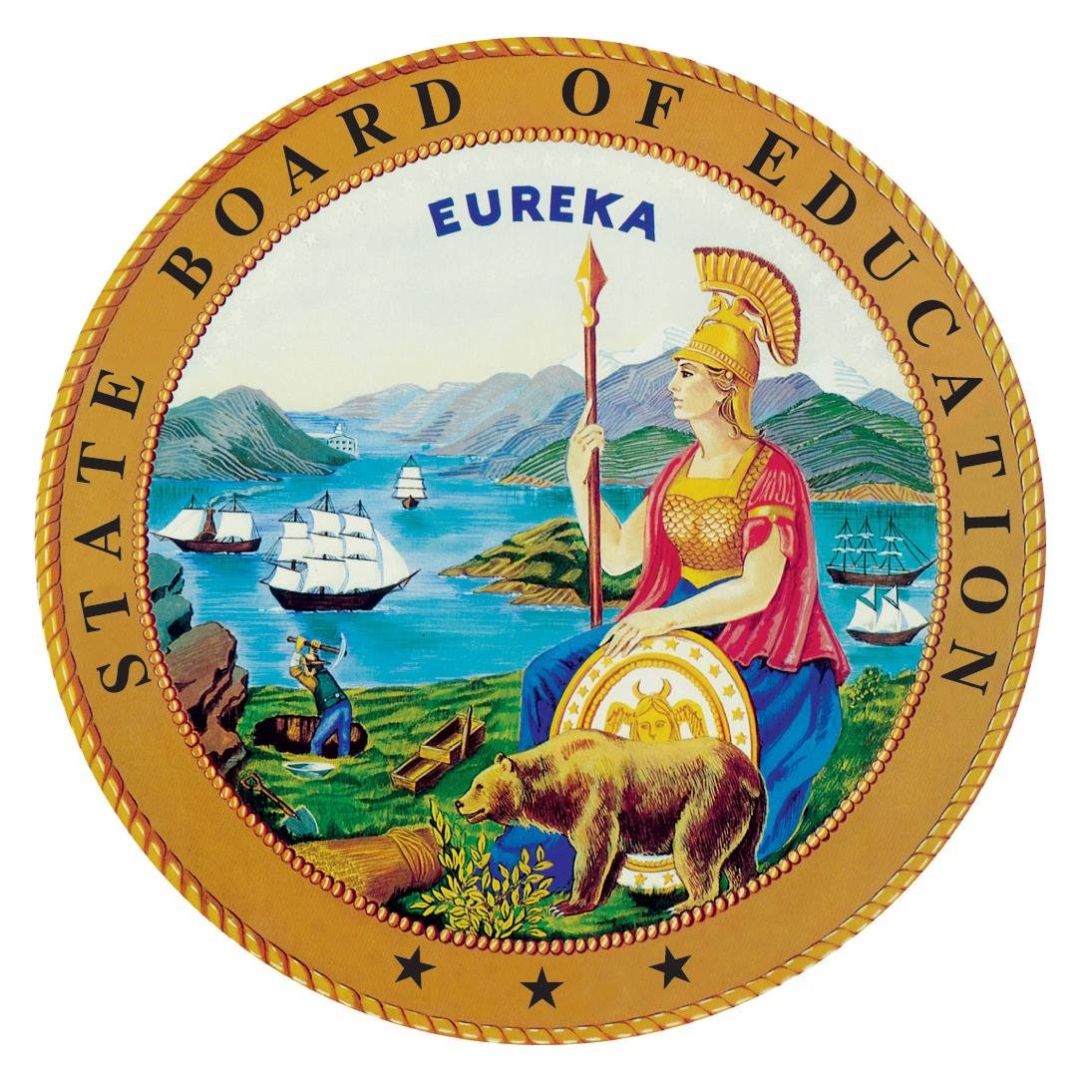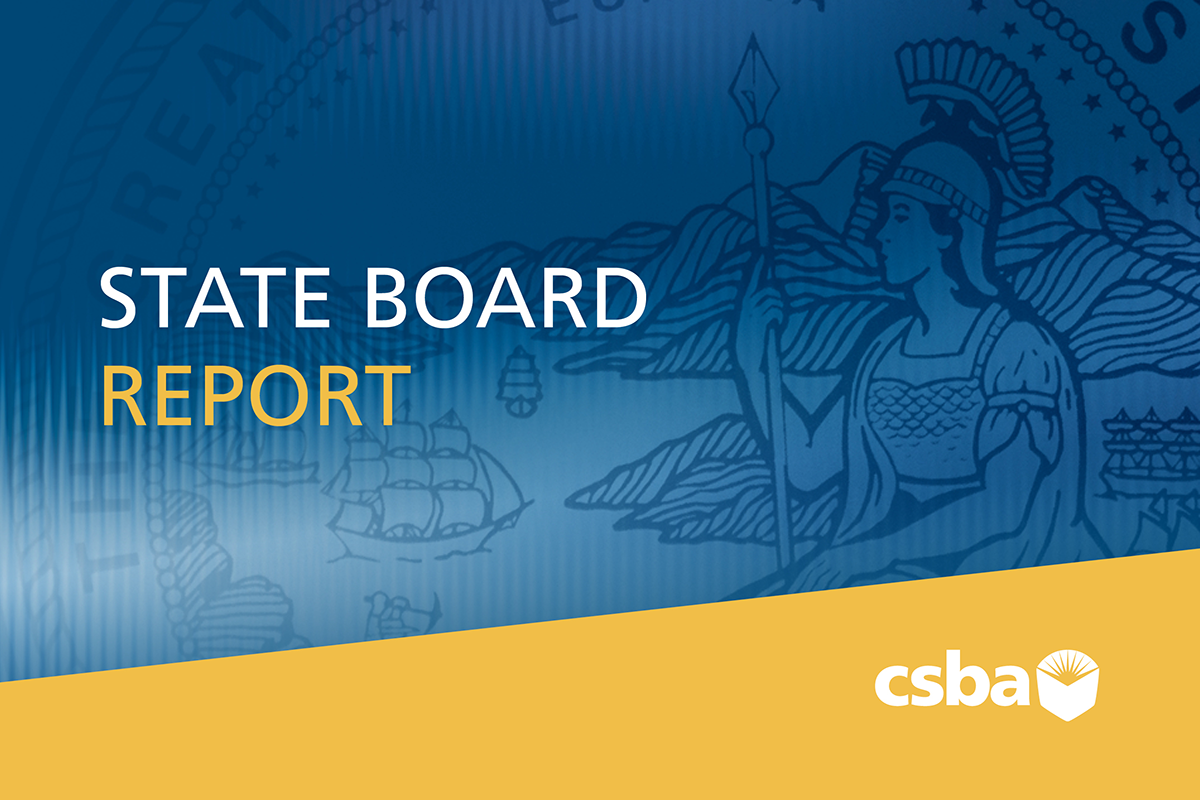State Board of Education President Linda Darling-Hammond opened the board’s November meeting by acknowledging the challenges that the state’s students, teachers, families and administrators are facing while outlining the progress they have made in reopening schools.
Darling-Hammond outlined the impact that a public health crisis, an economic crisis, a climate crisis and a civil rights crisis stemming from a long overdue reckoning with systemic racism have had on public education. At the same time, she shared news indicating that, while there is a long way to go, more students are engaged in learning. While more than 90 percent of students started school in online learning, as of the end of October, there were about 750,000 students attending in-person classes in 21 mostly rural counties. In 20 counties serving about 1.7 million students, there is a mix of districts offering in-person instruction and distance learning. Now, only 17 counties report they will remain in full distance learning models until at least through Jan. 1, 2021. Those counties serve about 3.6 million students and include some of the largest urban districts in the state.
Darling-Hammond noted that the California Department of Public Health had yet to find an increase in COVID rates associated with school openings, and credited both state and local efforts to ensure student and teacher safety.
“This is a time of great social disruption. And during these times of great social upheaval, we also have opportunities for great social transformation,” Darling-Hammond said. “We don’t want to return to the status quo with many of the inequities that have plagued the system of education in every state for many years. We want to return to a new normal in which [we] think differently about how we organize schools, how we support our educators and how we support our students. I think that’s something we’re going to see on the State Board’s agenda in the coming year.”
New, shorter assessments will allow LEAs flexibility in upcoming testing season
The board voted to revise and shorten the state’s annual standardized Smarter Balanced tests in math and English language arts in an effort to provide a flexible option for district leaders in an uncertain time without compromising assessment quality.
“We don’t know what the spring will bring us and we need to start preparing for whatever it may be,” said board member Ting Sun.
With the upcoming statewide summative testing window opening as early as Jan. 12, 2021, however, California Department of Education staff said that now is the time to consider revisions to the state’s assessment system — which includes the California Assessment of Student Performance and Progress System, the initial and summative alternate English Language Proficiency Assessments for California and the Physical Fitness Test — to accommodate the large swaths of students who may still be in distance learning or have to quarantine on short notice.
In lieu of seeking a federal waiver at this moment — which U.S. Education Department Secretary Betsy DeVos has already said will not be issued — the board approved shortening the exams that students in grades 3-8 and 11 are required to take in math and English language arts by nearly half. Typically, the tests take seven to eight hours to complete; the 2021 tests should take three to four hours.
The shorter tests can provide overall results comparable to the full versions with little loss of precision when evaluating the performance of schools or LEAs, according to CDE staff. Families would also still receive progress reports, similar to this example shared by staff.
Board member Cynthia Glover-Woods expressed the importance of providing guidance to LEAs on how to communicate to their stakeholders what the shortened tests entail, why they are being administered instead of the longform versions, what the results will tell families about their children’s academic achievement, and the different modes in which they may be administered. “I feel [that] will be very helpful for those in the field as they make decisions how to go about ensuring students have a spring testing environment that will best set them up for success,” Glover-Woods said.
In addition to guidance on how to administer tests, Board Vice President Ilene Straus stressed the need to address bandwidth issues for students in distance learning. Pointing to challenges faced by Advanced Placement students at the end of the 2019–20 school year, Straus said it is critical that any guidance take into account the various challenges posed in administering exams in a distance learning setting and provide support to help LEAs overcome those challenges.
“We’ve never given these tests remotely before,” she said. “I’m assuming that the guidance from CDE will include the settings and the options that we will have to administer to get valid and reliable data, and also gives students a fair shot to show what they know.”
Given the extraordinary circumstances and many pressures preventing schools and families from functioning normally this year, CSBA has maintained that additional flexibility through the federal waiver process would be welcome. In the absence of that, CSBA views a short form test as the best of the remaining options, albeit one that comes with many equity issues and operational challenges, such as poor or nonexistent home broadband access, online fatigue, the lack of tech support in the students’ homes, and variable test taking conditions in different households. In addition, with fewer questions comes greater measurement error as well as the variance that could be caused by the unusual context and inequitable conditions students are experiencing.
Progress made in implementation of charter renewal/establishment law
CDE staff provided an overview of the implementation of Assembly Bills 1505 and 1507 — specifically, the new review standard and process of the State Board and the Advisory Commission on Charter Schools in hearing appeals for the establishment and renewal of charter schools.
AB 1505, which went into effect on July 1, 2020, included new rules and standards for reviewing charter schools seeking establishment and renewal by governing boards of school districts, county boards of education and the SBE. Changes include:
- Extending timelines for reviewing petitions for the establishment of charter schools at the local level
- Identifying specific findings for the denial of petitions for the establishment of charter schools at the local levels, including interests of the entire community and fiscal impact
- Establishing additional criteria for chartering authorities to use when determining whether to grant a charter renewal, including charter schools’ performance levels and verified data
- Revising the process for charter schools appealing to the SBE
- Redefining the role of the Advisory Commission and SBE, including the ability of the SBE to summarily deny the review of an appeal, determine an abuse of discretion, and delegate oversight to the local levels
- Defining situations in which the CDE is to treat charter schools as “continuing for all purposes”
- Phasing in the requirement that charter school teachers have the same teaching credentials as traditional school teachers
Among other shifts, AB 1505 changes the submission process of new charter school petitions to district and county boards of education and appeals to the SBE. The bill also requires authorizers to consider “verified data” — defined as “assessment data from nationally-recognized, valid, peer-reviewed, and reliable sources that are externally produced” — for renewals of charter schools that fall within the low-performing and middle-performing categories. It also includes postsecondary outcomes, defined as “college enrollment, persistence, and completion rates equal to similar peers.”
As recommended by CDE, the board approved the recommendations of criteria to define verified data, the data use procedures related to verified data, academic progress indicators for inclusion within the approved verified data list, and postsecondary indicators for inclusion within the approved verified data list.
Board members and public commenters expressed concern that the list was too narrow to truly judge the quality of the wide range of charter schools that exist. The postsecondary indicators, for instance, do not contain student participation in career technical education or enrollment in trade schools or military enlistment. Board members voiced feeling constrained in this decision by the language in AB 1505.
Despite concerns, board member Patricia Rucker said this is an important first step, and that it is expected that the board would continue to revisit and revise the list.
“While the statute didn’t explicitly include career technical education, it didn’t exclude it either,” Rucker said. “There’s no such thing as perfect, and I would like to see as we begin to do the work to implement this, that we don’t sacrifice the good because we’re unhappy that we didn’t solve for perfect. I think this is a good start, and that it has resolved some longstanding concerns.”
The full list of recommendations for academic progress indicators and postsecondary indicators can be found here.
In other State Board meeting news:
- State Superintendent of Public Instruction Tony Thurmond commended General Motors for its donation in October of 500,000 cloth face masks, which will be distributed in a way that prioritizes equity, and recognized the 2021 teachers of the year, as well as the first round of recipients of the state’s “Education to End Hate” grant and dates for a supplemental virtual classroom series. The grant will fund educator trainings across the state to combat bigotry, racism and other forms of bias or prejudice in schools as part of the Education to End Hate initiative.
- Three finalists for the position of 2021–22 SBE student board member were approved and will be considered for final selection by Gov. Gavin Newsom and Senate confirmation. The student member, who has full voting rights and enjoys all other rights and privileges of SBE membership, will serve the one-year term. The finalists are Rana Banankhah, Modesto High School in Stanislaus County; Zachary Patterson, University City High School in San Diego County; and Jaden Stewart, North Hollywood High School Highly Gifted Magnet in Los Angeles County.
- The board heard proposals from student delegates developed during the 2020 Student Advisory Board on Education Conference held virtually from Oct. 31 through Nov. 2, 2020. Topics included student representation in education governance as discussed in-depth in the fall 2020 issue of California Schools, racial equity, civic education and school safety.
- Following CDE staff recommendations, the board confirmed that the Empirical Best Linear Prediction model — proposed as a means to stabilize the growth model that the department would use to measure students’ continued academic growth — will only use the same subject area when modeling student growth. During the board’s September meeting, it was indicated that the EBLP model used multiple subject assessment results to determine growth scores for both English language arts and mathematics. Board members agreed that moving to a single subject EBLP methodology would improve growth model communication.
- The board had directed CDE staff to look into the implications of including the English language proficiency levels from the English Language Proficiency Assessments for California scores into the Residual Growth, as had been proposed by stakeholders during the September meeting. The board opted to maintain the current student-level methodology, which holds the same expectations for growth for all student groups and allows comparisons of student group data. CDE staff committed to exploring additional options of breaking down data reports among English learners.
- The board accepted recommendations from the State Board of Education Screening Committee to appoint or re-appoint members to the Advisory Commission on Charter School, Advisory Commission on Special Education, California Practitioners Advisory Group and the Instructional Quality Commission.
The next State Board virtual meeting is scheduled for Jan. 8–9, 2021. View the full meeting calendar.




